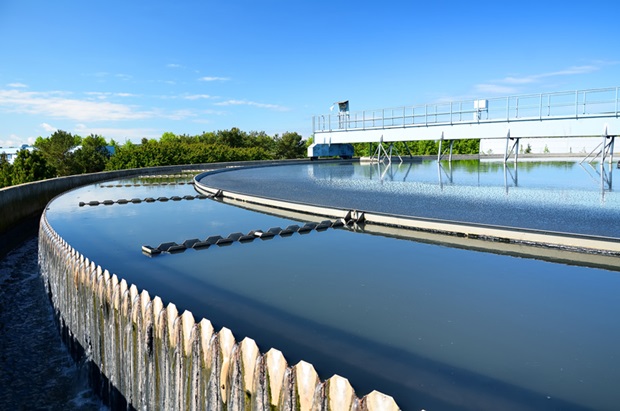Optimising the process design and applying advanced monitoring and control systems have resulted in significant reductions of the energy consumption in wastewater treatment processes – processes that today contributes to approximately 2% of the total electricity consumption in the industrialised world. Our results, which were presented at the 7th Singapore International Water Week earlier this month, is a great achievement in ensuring sustainable practice in dealing with water related challenges in an increasingly urbanised world in need for improved and sustainable sanitation solutions.
The new approach is a result of the research conducted in the Energy+ project, a project developed by Singapore researchers in collaboration with experts from France and Denmark and headed by DHI’s Martin Andersen, the Principal Investigator for the Energy+ project. The process adopted by DHI is a further development of the so called AB-Process: at the A-stage, biomass is recycled under a very short hydraulic retention time and used to capture organic material and divert it to anaerobic digesters, where biogas is produced that can decrease the plants’ electricity consumption in other processes; while at the B-stage, low energy demand activated sludge processes are applied to achieve nutrient removal and discharge compliance before it is discharged to the receiving water or released for reclaimed water production.
Built using MIKE Powered by DHI’s DIMS.CORE software, the intelligent aeration control strategies allow significant savings of energy in the Biological Nutrient Removal (BNR) processes. With the capability of DIMS.CORE, continuous data monitoring and automatic data processing is possible, enabling better management and decision making from the operator. This helps improve process resilience.
The success of this initiative is a step forward for Singapore in its efforts to become a Smart Urban City.
‘With new and stricter international requirements on energy consumption and greenhouse gas emissions, the water sector has put energy efficiency high on the agenda. There is an enormous market in minimising energy consumption of existing plants and making them, at least, energy neutral.’ – Martin Andersen, Business Development Manager, DHI
DHI Denmark has recently received funds under a Pre-Commercial-Purchase scheme from a number of Danish water utilities to transfer the experiences gained in Singapore for application in the European context under lower temperatures and stricter discharge requirement.

|
New approaches to improve energy efficiency of WWTP have been gained from the Energy+ research project.
© Shutterstock / DmitriMaruta |